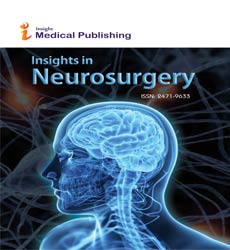Abstract
Gamma Knifeî Radiosurgery for Trigeminal Neuralgia
Background
Trigeminal neuralgia (TN) affects up to 0.3% of the population with pain often difficult to manage. It commonly affects patients over 50 years, and occurs more frequently in women. Treatment options include medical therapy, surgery (microvascular decompression (MVD) and percutaneous balloon compression (PBC)) and Gamma Knife® radiosurgery (GKRS). GKRS has been available at the Princess Alexandra Hospital since October 2015. Our objective was to evaluate the efficacy of GKRS on patients with TN and investigate the impact of known prognostic variables on patient outcomes.
Method
A retrospective review was conducted on all patients who received GKRS for TN from October 2015 till March 2018 in a single center tertiary neurosurgical referral hospital.
Results
43 patients with TN were treated with GKRS with a median follow up time after treatment of 7 months (6 weeks - 36 months). Median age was 69 years, 51% were female and 21% had atypical symptoms. 33% had previously had surgery (7=MVD, 7=PBC). Clinical benefit after GKRS was observed in 79% of patients at 1 month, 73% at 3 months, 74% at 6 months and 87% at 1 year. Of the 49% who experienced a relapse of pain within 1 year post GKRS, the median time to relapse was 8 weeks. No serious adverse events or severe toxicity were recorded. Patient and treatment factors that predicted worse outcomes were the presence of a vessel contacting the nerve, female gender and a higher radiation dose.
Conclusion
GKRS is an effective treatment option for patients with TN and it is particularly useful to consider in those with co-morbidities that make surgery high risk. GKRS has acceptable short-term beneficial results in TN, however with relapse other treatment options may be required.
Author(s):
Abstract | Full-Text | PDF
Share this

Google scholar citation report
Citations : 31
Insights in Neurosurgery received 31 citations as per google scholar report
Abstracted/Indexed in
- Google Scholar
- Directory of Research Journal Indexing (DRJI)
- WorldCat
- Secret Search Engine Labs
Open Access Journals
- Aquaculture & Veterinary Science
- Chemistry & Chemical Sciences
- Clinical Sciences
- Engineering
- General Science
- Genetics & Molecular Biology
- Health Care & Nursing
- Immunology & Microbiology
- Materials Science
- Mathematics & Physics
- Medical Sciences
- Neurology & Psychiatry
- Oncology & Cancer Science
- Pharmaceutical Sciences
